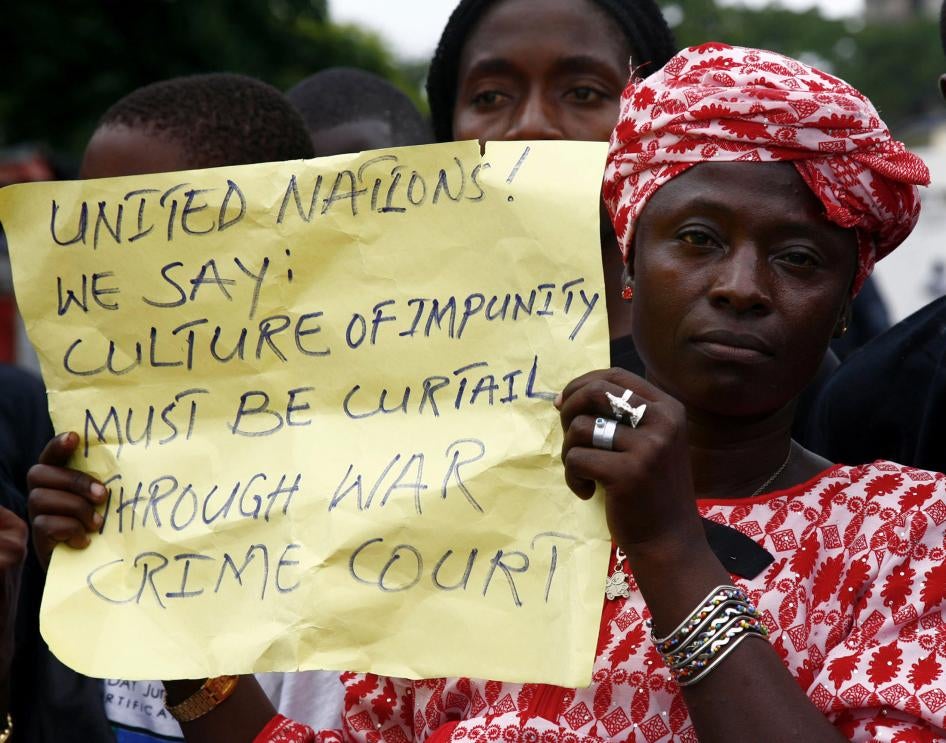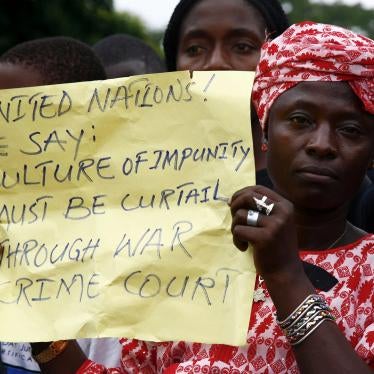*** Media Advisory ***
(Monrovia) – A public event on Friday, August 18, 2023, will highlight necessary next steps in the search for justice two decades after the signing of the Accra Peace Agreement, which ended Liberia’s second civil war.
The event will take place amid the debilitating effects of long-term impunity in Liberia and will amplify long-time civil society calls for those allegedly responsible for serious crimes to be prosecuted. The event will also point to the need for all candidates in the presidential elections scheduled for October 2023 to support creation of a war-crimes court for civil wars-era crimes.
Speakers will include presidential candidates, legislators, religious leaders, survivors of abuse, and civil society activists, with a keynote address by the Liberian Nobel Peace Laureate Leymah Gbowee.
The event is organized by the Secretariat for the Establishment of the War Crimes Court and its members: the Global Justice and Research Project, the CSO Platform for Human Rights Advocacy in Liberia, and the Liberian Massacre Survivors Association, with support from the Center for Justice and Accountability and input from Human Rights Watch.
Journalists are invited to attend the program, which will take place at the Corina Hotel, with registration beginning at 8:30 a.m.
Between 1989 and 2003, during Liberia's back-to-back civil wars, all parties committed serious violations of international law. In June 2009, Liberia’s Truth and Reconciliation Commission recommended that Liberia establish a mixed international and domestic war crimes court to try those allegedly responsible for the violence. Yet, in the two decades since the Accra Peace Agreement was signed, Liberia has failed to hold a single person to account for civil wars-era crimes. The only prosecutions have been held outside the country on the basis of universal jurisdiction or for violations of immigration laws, as in France, Switzerland, and the United States.
“The lack of criminal accountability for civil war-era crimes in Liberia continues to cast a long, dark shadow on post-war development,” the organizers’ concept note said. “[There is a need] to forge a new consensus on the imperative of criminal accountability as an essential ingredient in building trust and transitioning to positive peace and stability. Without these actions, Liberia is likely to remain trapped.”
|
Statement
Liberia: Accra Agreement’s Unfinished Business
20 Years After Civil Wars Ended, Still Seeking Justice
Your tax deductible gift can help stop human rights violations and save lives around the world.
Region / Country
Topic
Most Viewed
-
November 25, 2019
A Dirty Investment

-
June 3, 2025
“They’re Ruining People’s Lives”

-
January 25, 2024
“We’re Dying Here”

-
December 21, 2023
Meta’s Broken Promises

-
February 19, 2018
“All We Want is Equality”



